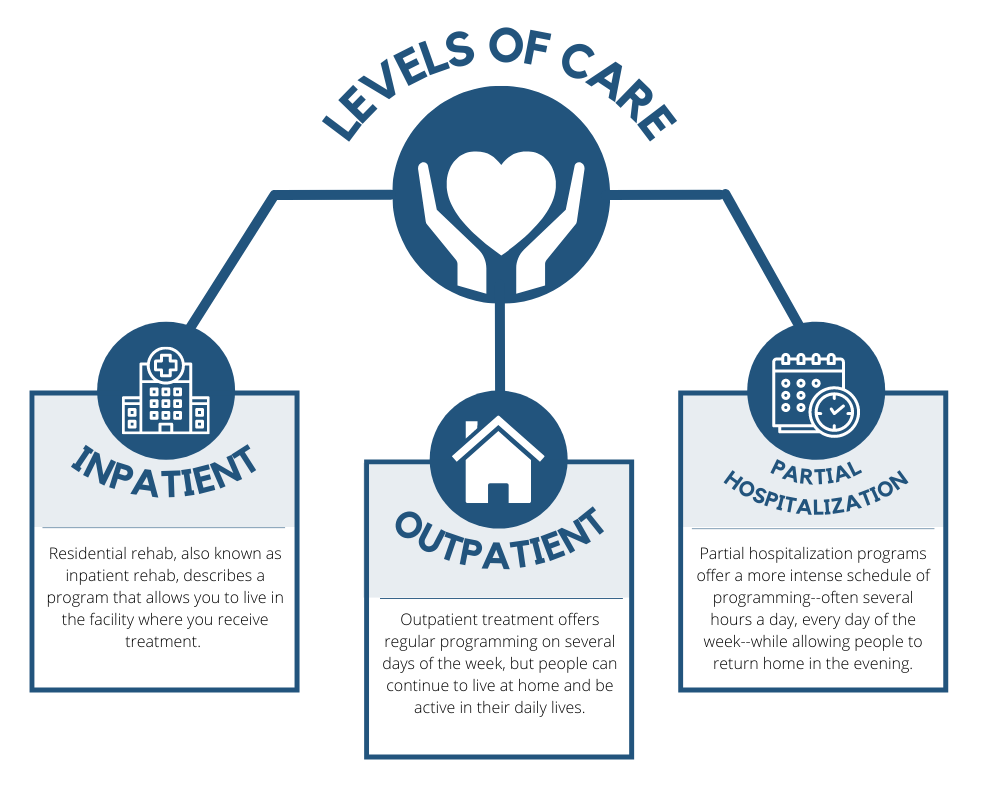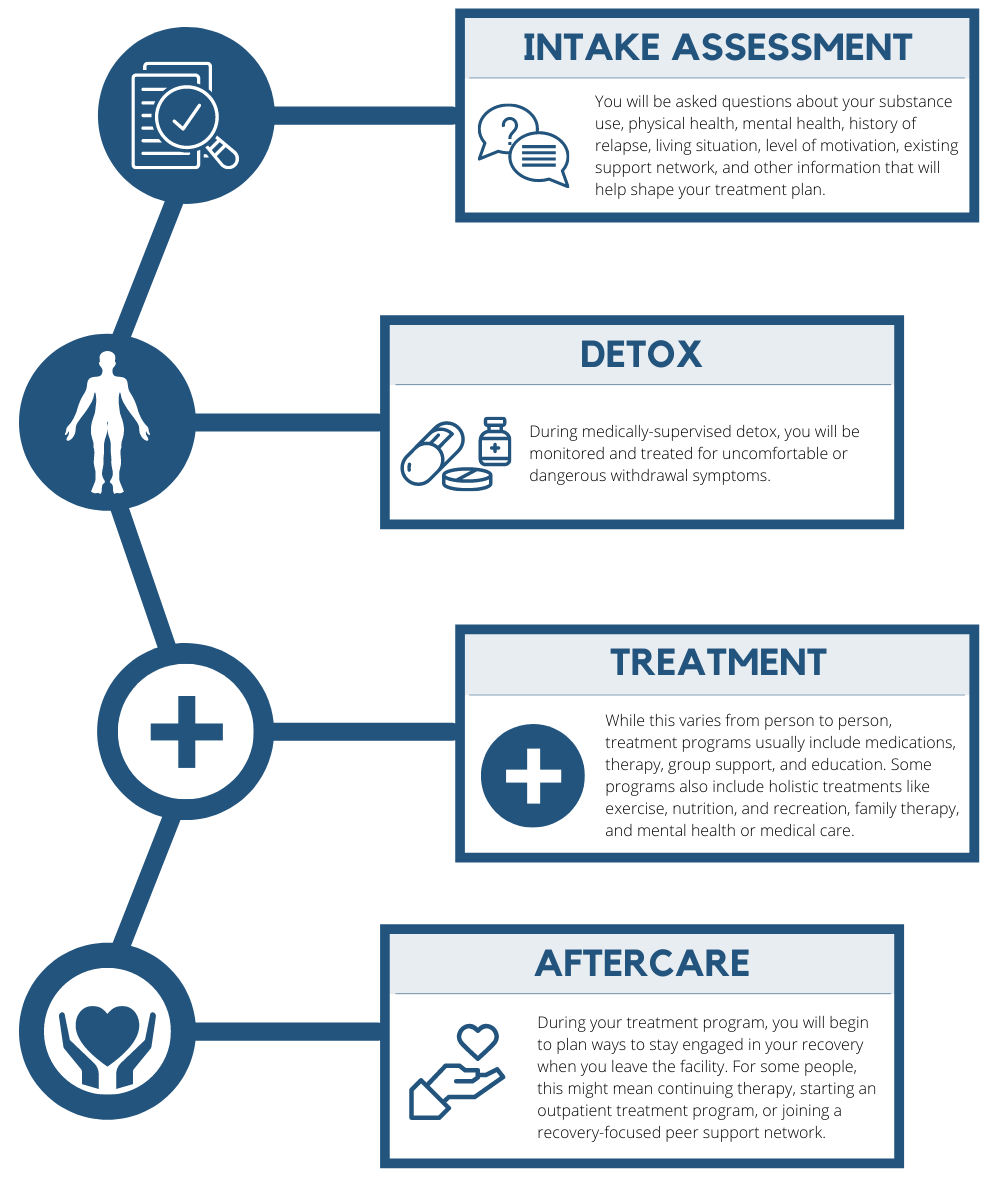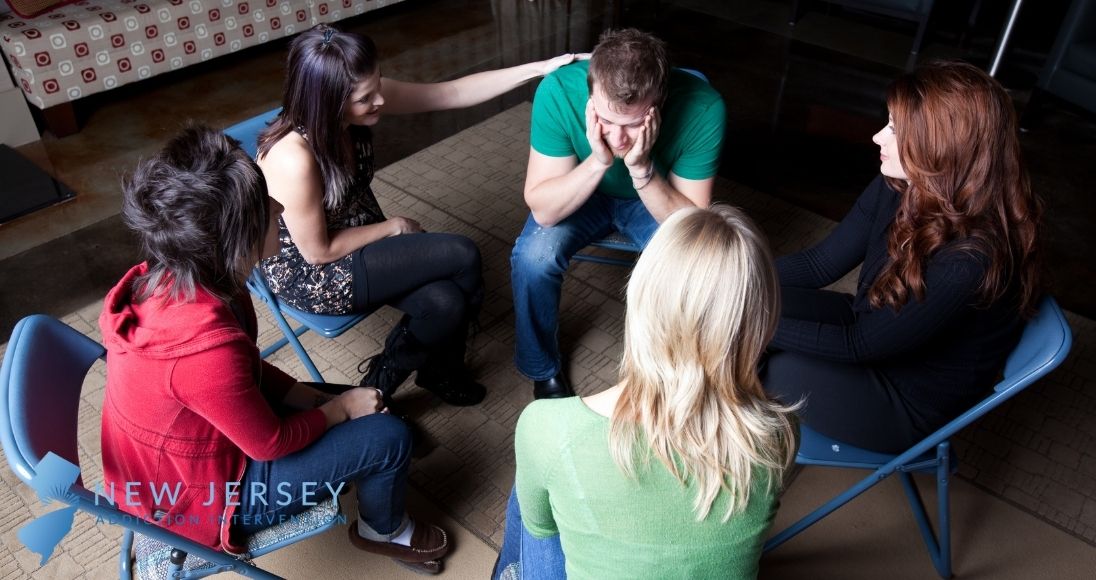Addiction impacts the lives of millions of people in this country. Living with an untreated addiction often means facing severe consequences to your physical, social, and emotional health. An addiction can derail a person’s life, diminish their health and wellbeing, and put serious strain on their most important relationships.
While there are some risk factors that make it more likely, anyone can develop an addiction. Most people require substance abuse treatment of some kind to overcome their addiction. Treatment for substance abuse and addiction comes in many forms and takes place in a variety of settings.
While having many options in how to receive treatment makes the process flexible and adaptable, it also means that you will need to make a lot of decisions when choosing how to get treatment. For many people, especially those with an active addiction, navigating this process can feel overwhelming.
Residential treatment is a level of care that provides high-quality addiction treatment and a safe, stable place to live. If you or a loved one are considering this treatment option, it is important to learn as much as you can about residential treatment in New Jersey so that you can feel confident in your choice.
What Level of Care Do I Need?
With all the treatment options available, you may be wondering how to choose the one that will meet your needs. The type of care you require depends on your unique needs, personal factors, and the severity of your addiction.

Residential
Residential rehab, also known as inpatient rehab, describes a program that allows you to live in the facility where you receive treatment. Generally, these programs offer more programming, structure, and stability for their residents. For some, the intensity of the programming means that the actual length of time spent in treatment is shorter.
Outpatient
Outpatient treatment offers regular programming on several days of the week, but people can continue to live at home and be active in their daily lives.
Partial Hospitalization
Partial hospitalization programs offer a more intense schedule of programming–often several hours a day, every day of the week–while allowing people to return home in the evening.
Your doctor and addiction specialists will help determine which level of care will meet your needs.
Exploring Residential Addiction Treatment in New Jersey
Residential addiction treatment in New Jersey offers people the chance to get high-quality, intensive treatment while getting the benefits of a stable living situation and the support of a community. Residential addiction treatment is a good choice for people who have:
- Recurring substance abuse issues
- A dual diagnosis (a mental illness and a substance use disorder)
- A severe addiction
- Unsuitable or unstable living conditions
Some of the benefits of inpatient addiction treatment include:
- 24-hour access to addiction and medical professionals
- Security
- Around-the-clock monitoring
- Medical services for stabilization
- Open-ended time frame (no hard limits on how long you can stay)
- Offered in a hospital or facility setting
- Ability to get mental health care and addiction treatment at the same time
- A supportive community of staff and peers
- Distance from triggers
There are many different ways to participate in residential treatment, including hospital-based programs, sober living communities, and residential treatment facilities. Many people enjoy being able to receive their treatment in a safe, supportive, home-like setting.
What is Treatment in Residential Rehab Like in New Jersey?
Addiction treatment happens in several stages, and each person will receive a tailored plan that meets their needs. Generally, residential rehab includes:

Intake Assessment
You will be asked questions about your substance use, physical health, mental health, history of relapse, living situation, level of motivation, existing support network, and other information that will help shape your treatment plan.
Detox
During medically-supervised detox, you will be monitored and treated for uncomfortable or dangerous withdrawal symptoms.
Treatment
While this varies from person to person, treatment programs usually include medications, therapy, group support, and education. Some programs also include holistic treatments like exercise, nutrition, and recreation, family therapy, and mental health or medical care.
Aftercare
During your treatment program, you will begin to plan ways to stay engaged in your recovery when you leave the facility. For some people, this might mean continuing therapy, starting an outpatient treatment program, or joining a recovery-focused peer support network.
For people who have tried lower levels of care, or who struggle with an intense or long-term addiction, residential treatment provides a way to receive comprehensive treatment in a secure, comfortable living space.
Find a Residential Treatment Program in New Jersey Today
If you or someone you love live in New Jersey and need addiction treatment, please reach out to the staff at New Jersey Addiction Interventions. We believe that anyone can recover from their addiction if they have the support, resources, and treatment they need. That is why we offer a range of programs that are carefully designed to support people at every stage of their addiction recovery journey.
If you know you need help but don’t know where to get started, don’t wait another day. Call today to speak with one of our caring, knowledgeable admissions staff. Take the first step in your recovery journey now.
Medically Reviewed: November 15, 2021

All of the information on this page has been reviewed and verified by a certified addiction professional.

